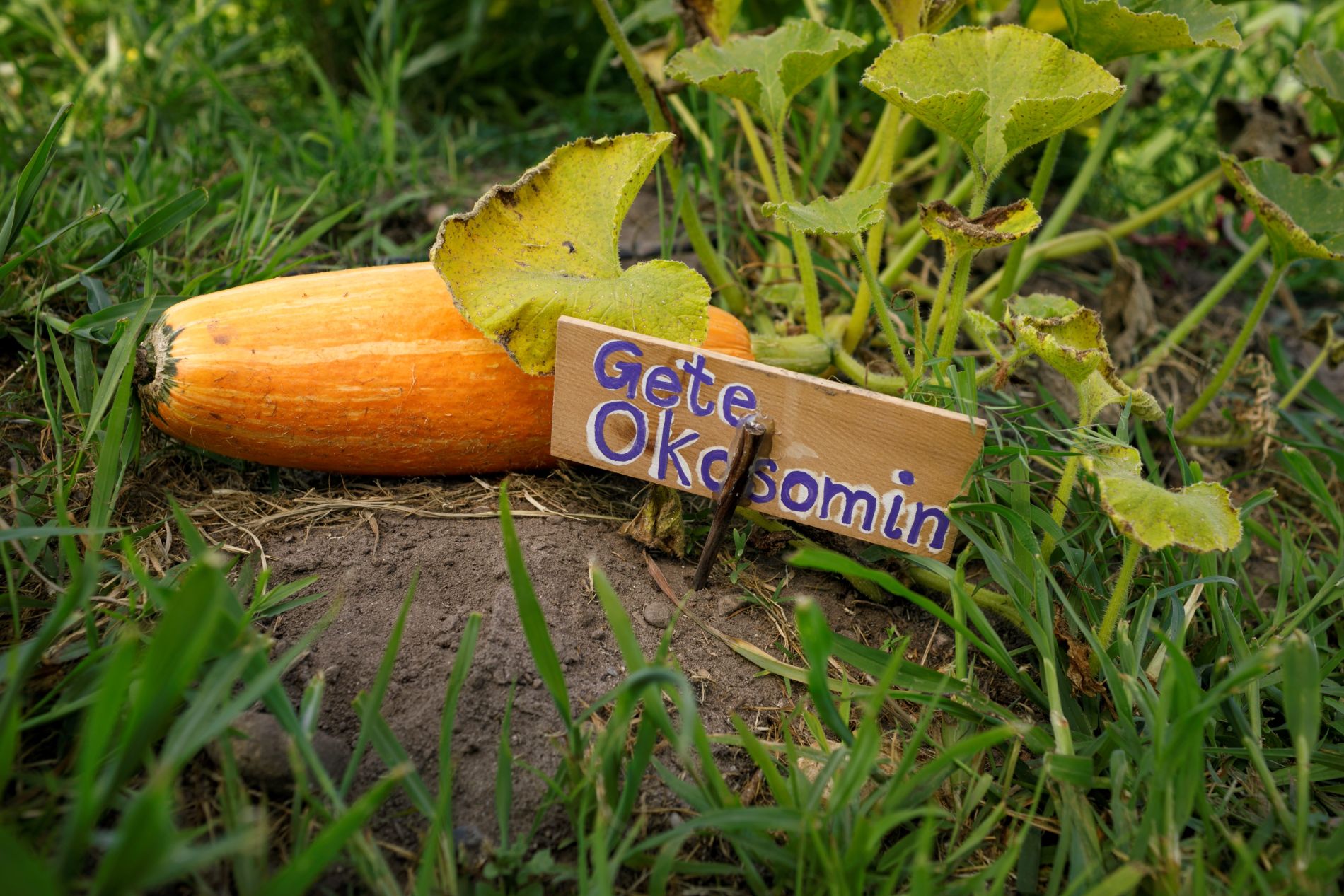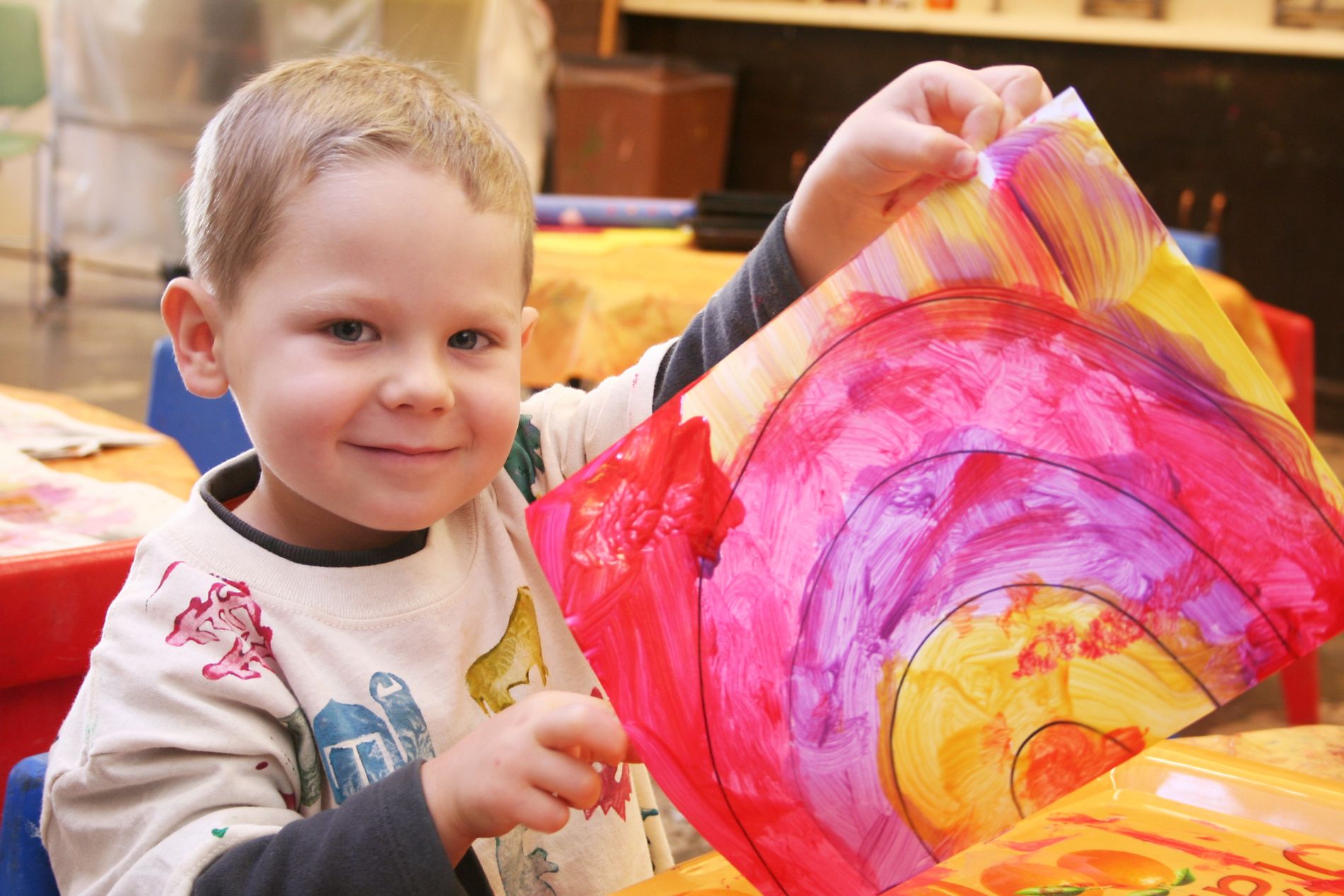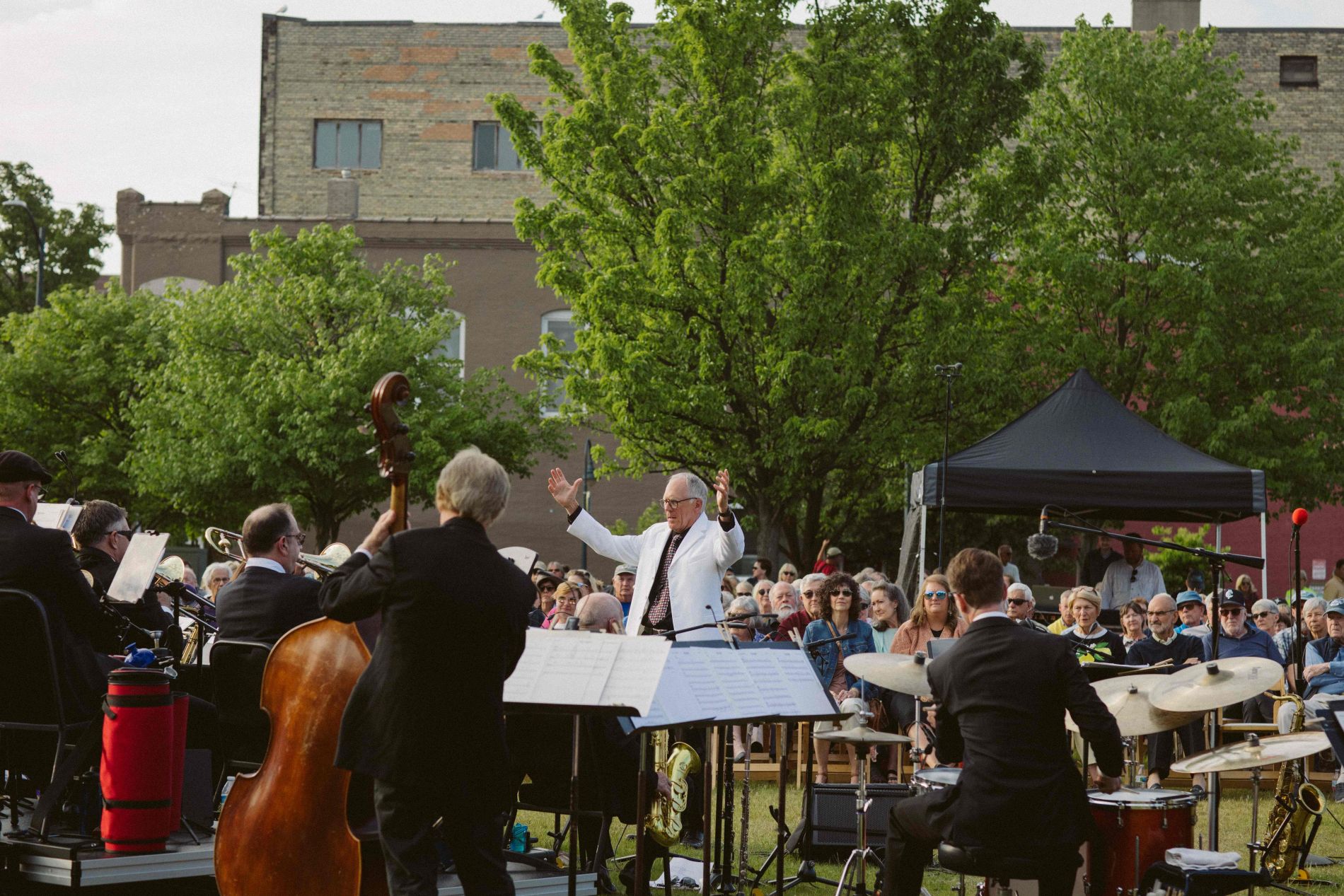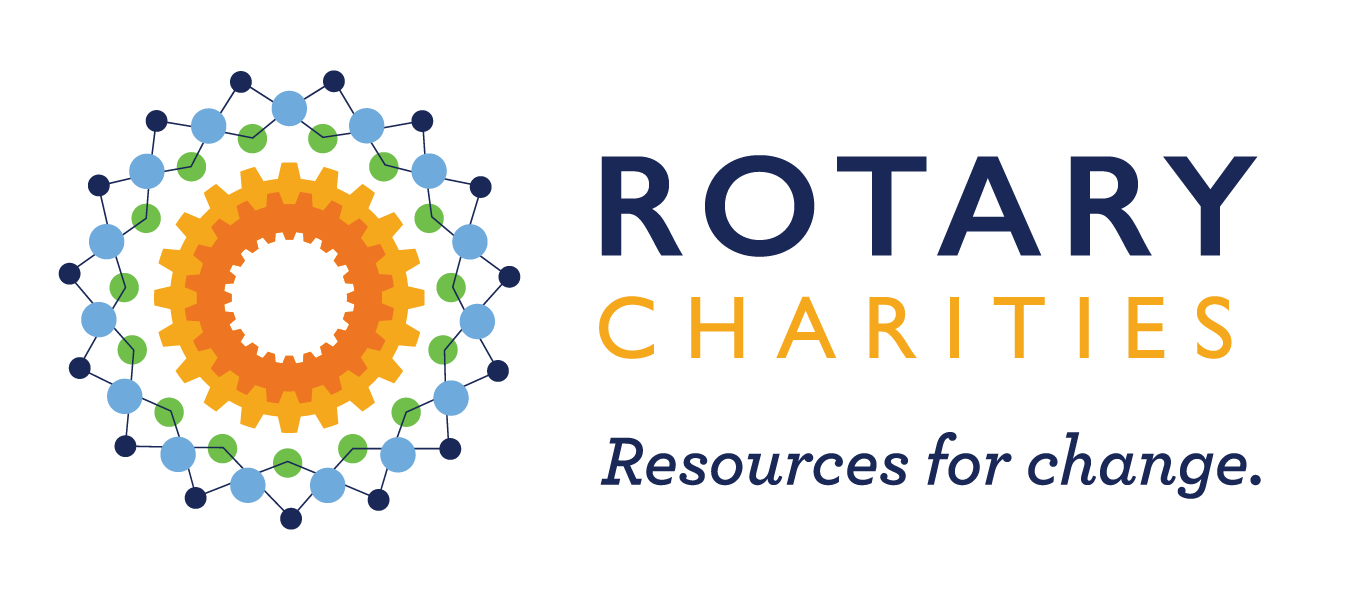TO TOP
Together We Thrive
Everyone should have the opportunity to thrive in their community.
We believe that thriving means physical, emotional, and social well-being. It requires access to basic needs, education, economic opportunity, safety, social connection, and a sustainable environment. Ensuring that we can all thrive requires us to draw on the traits that helped us through the past few years—adaptability, empathy, cooperation, creativity, and resourcefulness.
We acknowledge that thriving will mean different things to different communities, and the conditions needed to support it will also be unique.
Together, we bring renewed hope and progress that will impact all people for generations.
A letter from Sakura Takano, Rotary Charities CEO

Amid the challenges, losses, and uncertainties that marked the past few years, our collective focus was drawn to simply surviving. Surviving has tested, and strengthened, some of the most vital aspects of our humanity. We had to adapt quickly to shifting circumstances, cooperate and depend on each other in critical ways, and creatively innovate to meet immense needs within new constraints.
Now, as we take a deep breath, a new question is emerging: What does it mean for all of us to move beyond survival, and thrive? And what will it take?
We believe that thriving means physical, emotional, and social well-being. It requires access to basic needs, education, economic opportunity, safety, social connection, and a sustainable environment. Ensuring that we all can thrive requires us to draw on the traits that helped us through the past few years - adaptability, empathy, cooperation, creativity, and resourcefulness. We acknowledge that thriving will mean different things to different people and communities, and the conditions needed to support it will also be unique.
Looking across the communities we serve, we saw a yearning for inclusive and thriving communities reflected back and a clear acknowledgment that none of us can do it alone. More and more people are engaging together to repair inequities in access to basic needs like housing, healthy food, and quality early childhood care and education. Mental health and well-being have become a new priority for school districts and employers, and providers are coming together to address systemic gaps. Community assets that encourage creativity and engagement– like arts, recreation, and public spaces– are more accessible to all.
We are grateful for the bold action across the region to create more adaptive and inclusive communities. Our communities are proving that together we can thrive. We remain steadfast in our commitment to support what this uniquely means for each community and invite you to join the journey, together.
With deep gratitude,
Sakura Takano, Chief Executive Officer
A letter from Greg Luyt, Rotary Charities Board Chair

It is with great pleasure that I reflect on my role as Chair of the Rotary Charities Board and the impact we continue to make in the Grand Traverse Region. Our Board is comprised of dedicated, thoughtful, and engaged individuals who continually strive to enhance and expand the great work Rotary Charities has done in our community for over four decades.
This past year has seen a thrilling expansion of our work to address the problems in our region at their source and to affect meaningful change in larger interconnected systems to create an adaptive and thriving community for all. Through the remarkable efforts of our staff, Rotary Charities has not only become a local leader but also gained recognition on a national scale for our expertise in driving systemic change.
Our Board has also embraced a commitment set forth in our strategic plan to expand the role that equity plays in our grantmaking, and in all of the work we do in our community. We have begun this process with all Staff and Board members completing an Intercultural Developmental Inventory Assessment, and in the coming months will engage in multiple dedicated sessions to plan and implement action that will embed equity in our processes, and create inclusive growth for all in our community.
As we move forward, we remain dedicated to enhancing Rotary Charities’ positive impact in our region. It is a privilege to be part of this journey, and I eagerly anticipate the opportunities and accomplishments the coming year will bring.
Sincerely,
Greg Luyt, Board Chairperson
Jump to a section


We are dedicated to working alongside changemakers to catalyze conditions necessary for our region to be adaptive and thriving. Through funding, learning opportunities, and connections, we help propel efforts that develop community assets and address the root causes of complex problems.
Our Strategies
FUNDING

LEARNING

CONNECTING

Desired Outcomes
Initiatives have adequate resources to prepare for, launch, sustain, or adapt work towards new or expanded community assets or address root causes of community issues.
Changemakers have the skills, mindsets, and incentives to work in ways that are inclusive, equitable, collaborative, aligned, resourceful, reflective, and adaptive.
Changemakers leverage new connections with each other, learning opportunities, and support.
Impact of Our Work
COMMUNITY IMPACT
Changemakers create or expand accessible community assets.
Changemakers work together to redesign systems that work well for everyone.
REGIONAL IMPACT
People have access to what they need to be healthy, engaged, and connected.
Communities adapt to local challenges and opportunities.
THRIVING THROUGH TRADITION: RESOURCEFUL FOOD SOLUTIONS

For the Grand Traverse Band of Ottawa & Chippewa Indians (GTB), thriving means being able to provide fresh produce for Tribal members that is grown in ways that align with their traditional Indigenous values and lifeways. Rotary Charities was proud to support GTB with a Seed Grant in 2019 to help purchase seeds to establish the Gitigaan (garden) in Peshawbestown, the first project of the newly established GTB Agricultural and Food Sovereignty Department.
In 2023, Rotary Charities continued our support with a $50,000 grant to finish an innovative fish waste processing facility that will allow the GTB to turn waste from Tribal and regional fisheries into shelf-stable, liquid fertilizer. The grant was made alongside significant investments from the Michigan Department of Environment, Great Lakes, and Energy (EGLE), and the GTB Tribal Government.
Already, the project has diverted about 75,000 pounds of fish waste from landfill and lake disposal into static composting piles that have been used for Gitigaan and Tribal members' home gardens. The first liquid fertilizer is expected Spring of 2024, however, testing and research will continue into the summer of 2024.
Since 2019, GTB has provided approximately $30,000 of fresh produce to Tribal members. “Members are thankful for the free produce and its availability, especially with the high cost of fresh produce and inflation of the economy,” shares Becky Oien, GTB Tribal Manager.

ALIGNED FOR BRIGHTER FUTURES: SHAPING QUALITY CARE IN NORTHWEST MICHIGAN

High-quality childcare helps keep children safe and healthy and develops the skills they need for a successful transition to school. Access to affordable, high-quality childcare also helps parents participate in the workforce and better support their family. This year Rotary Charities provided two grants totaling $160,000 that support childcare initiatives in our region.
United Way of Northwest Michigan implemented a multiple-approach strategy called “Child Caring Now,” focused on bringing together providers, parents, employers, and other entities to improve the early childhood learning opportunities in the region. The initiative creates a space for collaboration amongst its participants and action teams, accelerating work that is already happening and encouraging cross-sector partnerships, resulting in new efforts like the Child Development Associate certification program at Northwest Michigan College to address the demand for more childcare workers.
The need for workforce is coupled with the need for quality childcare providers. Ashley Lindstrom, a former teacher in Benzie County, experienced first-hand the challenge of finding reliable, affordable, and quality childcare and felt called to also support the needs of other parents in her community. Through a partnership with United Way, Ashley founded the Whistle Stop Learning Center in Thompsonville.
Since opening in October, Whistle Stop Learning Center has been providing care for 35 children (with nearly half the families receiving state aid to pay for the costs) and has requested to increase its licensed capacity to 52 to accommodate a waitlist. It is among a growing number of initiatives motivated to contribute to the well-being and vitality of our region by addressing access to quality childcare.
COLLABORATIVE EFFORTS PROPEL A GREENER FUTURE

SEEDS Ecology and Education Centers is at the forefront of a collaborative effort to reduce organic waste in Northwest Michigan. Their work is not only addressing a pressing environmental challenge but also channeling investments into local economies, paving the way for a greener future.
Standard waste management practices prioritize landfill access over recycling and waste prevention strategies, disregarding the potential of organic waste as a valuable environmental and economic resource. Their initiative, Building Momentum: Organics Waste Diversion in Northwest Michigan, holds tremendous promise to shift this paradigm and transform our relationship with waste.
With a collaborative and inclusive approach, SEEDS has convened cross-sector stakeholders throughout the region to leverage their strengths and expertise to address the entire value chain, from waste sorting to end-user utilization. Their constellation of actions includes education, assistance to businesses and institutions, waste prevention and rescue, research on processing technologies, and legislative advocacy. By reframing organic waste as a valuable resource, they are empowering communities to enhance soil fertility, protect water quality, and prevent greenhouse gas emissions.
This year, the initiative received a $150,000 Systems Change Accelerator grant, unlocking additional implementation funds, including a $300,000 City of Traverse City pilot project funded by the USDA. This pilot aims to divert 100 gallons of food waste per day from the dumpster.
SEEDS and its partners have ambitious plans for the future as they continue to build upon their successes. By working to scale their value chains and engaging enthusiastic champions, they aim to inspire more involvement in organic waste diversion. These efforts align with the State of Michigan’s goal to divert 45% of solid waste from landfills, fostering a more sustainable and resilient region.
INCLUSIVITY IN ACTION: LISTENING AND LEARNING FROM LOCAL VOICES

In each community we serve, what it means to thrive is shaped by the unique needs and values of its residents and its relative access to resources. We believe in listening to our grantees and their communities, ensuring that the voices of stakeholders with relevant expertise and those with lived experience are heard when identifying the priorities of the community. In doing so, we empower our grantees to address complex community problems and build assets that contribute to a vibrant quality of life for residents and visitors.
COMMUNITY SPACES
Through the revitalization of Brownson Memorial Park, the Village of Kingsley aims to foster a healthier, more resilient, and engaged community. A robust community engagement process led in partnership with the Kingsley Public Library garnered unanimous support from village residents who attended visioning sessions and public hearings. By transforming Brownson Memorial Park into an attractive, accessible, and inclusive space, the Village of Kingsley aims to enhance the quality of life for its residents and attract future businesses and visitors to the area.
OUTDOOR RECREATION
Mt. Holiday’s Community Integration and Outdoor Recreation initiative focuses on reimagining and integrating Mt. Holiday with the surrounding community and municipalities. By engaging diverse stakeholders, such as the mountain biking community, disability advocates, community members, and economic development leaders, and incorporating their needs and ideas into the greater plan, Mt. Holiday is fostering community ownership and creating programs that promote inclusivity and accessibility.
HOUSING
Affordable housing is a pressing issue in Northern Michigan, and addressing this need is crucial for creating communities where all residents can afford to live and, therefore, have an opportunity to thrive. The Leelanau Township Community Foundation is exploring the development of moderately-priced housing near Northport in Leelanau County to support a year-round economy. By convening business owners, nonprofit organizations, local government representatives, and community residents, they have fostered collaboration and ongoing engagement. Their inclusive approach has led to a clearer vision of actions to address the need for affordable housing in Leelanau Township.
STORIES OF CHANGE INSPIRES OTHERS THROUGH LOCAL EXAMPLES OF TRANSFORMATION

This year we launched a new publication and video, Stories of Change, documenting how a systems change approach is transforming our work and our region. In late January 2023, nearly 230 people gathered at the City Opera House to connect, celebrate, and hear the stories come alive on stage.
Each story shared how stakeholders are coming together to:
- Focus on the upstream and systemic causes of complex community issues rather than only the symptoms or consequences of those problems;
- Deeply collaborate to share accountability and power between those working on all areas of an issue and those who have experienced its consequences firsthand;
- Use a constellation of emerging actions and ongoing learning to transform the factors that underlie the problem.
Stories of Change also shared the path of our own transformation and how we’ve shifted our practices, policies, and mindsets in order to be better partners in supporting this type of work.
Since sharing Stories of Change, we have been overwhelmed by the response we’ve received, such as:
“Stories of Change helped us go from—my hair is on fire and we need to do something, anything—to there are smart people in our community who have tackled the root causes of some big issues. We were especially impacted by the approach taken by the Northwest Michigan Coalition to End Homelessness and how they involved at-risk youth to craft solutions.”
— Jay Berger, Co-Founder, Safer Kids, Safer Schools
“Stories of Change has given us a clear and compelling picture of systems change work in action. It reveals a truth that, once seen can’t be unseen: if we are serious about addressing any social issue, we must go beyond the surface and be willing to reexamine everything we think we know about the problem. We are grateful to have this resource to draw from and are inspired to apply the learning it so beautifully shares.”
— Billy McGuinness, Executive Director, Seabury Foundation
The publication and video have traveled the globe, reaching practitioners, funders, and capacity builders in 41 countries! We’ve heard back from many saying that the stories provide new clarity about the nature of this kind of work, inspiration, and hope. People are sharing the stories and video with their staff, boards, and partners, initiating new conversations about their role in addressing the roots of complex community-level
issues.
We are delighted by the ripple effects we’re already seeing and are excited to see where the journey leads next. If you are taking a systems change approach, or would like to learn more, we would love to connect with you. Visit the Stories of Change webpage to find the case studies, discussions guides, and more inspiration.
SUPPORTING ORGANIZATIONS THAT HELP COMMUNITIES THRIVE
CAPACITY ADVISORY POOL
A commonality that all organizations share is that challenges arise. Many times, these challenges are unexpected and could benefit from the guidance of someone who is an expert in the topic to help clear a path forward.
This is the framework for the Capacity Advisory Pool (CAP) program, which provides up to 5 hours of support from experienced consultants at no cost to eligible organizations. The goal of the program is to provide the tools, resources, knowledge, and support for organizations to be better equipped for lasting impact that extends beyond the current challenge.
This year, 39 organizations received 100 hours of support through CAP. This support helped recipients to prioritize where to focus energy and attention to overcome their challenges in areas such as fund development, human resources, and collaboration. For many, this guidance has provided clarity in decision-making and created conditions to be more resilient when other challenges arise.
“I find the CAP program to be a tremendous capacity-building resource for nonprofits. Nonprofits can get stuck on occasion and may not possess the internal expertise to advance in a confident manner. As a nonprofit consultant, it is a pleasure to be a listening ear and provide tools and experience to help accelerate their forward movement.”
— Anthony Rupard, The Solvent Group

Interpretive signage at Grass River Natural Area includes text in braille, providing greater access to those with visual impairment. With help from the Learning Fund, James Dake attended the conference of the National Association for Interpretation.
Photo Credit James Dake
LEARNING FUND
Organizations flourish when staff feel valued, motivated, and can grow in their careers. Encouraging continued learning ensures that knowledge and skills stay relevant and up-to-date, which is beneficial to the individual, organization, and community.
The Learning Fund was created as a way to help encourage professional growth and build organizational resilience and adaptability. Created in 2020, it provides financial support to individuals or organizational teams to pursue learning opportunities. Support through the Learning Fund may go towards trainings, workshops, conferences, or other professional learning broadly aligned with Rotary Charities’ mission and guiding principles.
This year Rotary Charities awarded $22,528 to 28 individuals and 9 teams for online learning programs on topics such as collective impact and fundraising, and in-person professional conferences focused on the Great Lakes, rural health, Diversity, Equity and Inclusion, and experiential learning.
IMPACT INVESTING
We believe in the power of aligning Rotary Charities’ endowed assets to our mission and goals by creating new sources of investment capital. Since 2018, we have invested nearly $2 million in intermediary organizations like Community Development Financial Institutions (CDFIs) and local nonprofits. Five years into this strategy, our community has benefitted from an increase in affordable housing inventory, new community spaces, small business growth, and new philanthropy capital supporting impact investing in the region.

Photo Credit Colin Merry, Benzie County Record Patriot
With these efforts, we:
- Facilitated relationships between IFF and local housing stakeholders to innovate around shared housing needs, and support unique projects like Commongrounds Co-op, Discovery Center - Great Lakes, and Dann’s House.
- Partnered with Michigan Community Capital, Traverse City Housing Commission and Goodwill Northern Michigan to develop a 60-unit mixed income redevelopment in Traverse City.
- Supported small businesses across the region through Venture North’s lending and business support programs.
- Helped restructure nonprofit debt during COVID-19 shutdowns.
GRANTS & FINANCIAL STATEMENT
GRANTS BY PROGRAM AREA
Click here to see Grants by Program Area.

STATEMENT OF ACTIVITIES
| FY 2023 | FY 2022 | ||
|---|---|---|---|
| Net Assets, beginning of year | 45,350,019 | 54,157,913 | |
| REVENUE AND GAINS | |||
| Consulting fees | 13,598 | 35,605 | |
| Investment return, net of investment fees | 3,799,589 | (5,994,981) | |
| Oil and gas royalty income | 185,545 | 352,280 | |
| Grants and Other | 95,103 | 31,377 | |
| TOTAL REVENUE AND GAINS | 4,093,835 | (5,575,719) | |
| OPERATING EXPENSES AND GRANTS | |||
| Program Services | 3,072,753 | 3,095,774 | |
| Management and general | 161,018 | 136,401 | |
| TOTAL OPERATING EXPENSES AND GRANTS | 3,233,771 | 3,232,175 | |
| Change in net assets without donor restrictions | 860,064 | (8,807,894) | |
| Change in net assets with donor restrictions | - | - | |
| TOTAL CHANGE IN NET ASSETS | 860,064 | (8,807,894) | |
| Net assets without donor restrictions end of year | 46,210,083 | 45,350,019 | |
| Net assets with donor restrictions end of year | - | - | |
| TOTAL NET ASSETS END OF YEAR | 46,210,083 | 45,350,019 | |












